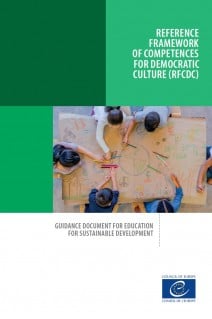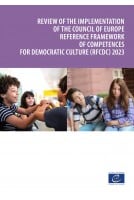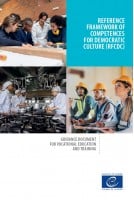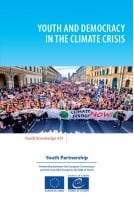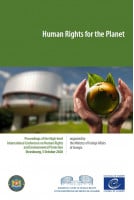How can the Reference Framework of cCmpetences for Democratic Culture (DFCDC) be applied to education for sustainable development?
In the face of today’s complex sustainability challenges, empowering young people to take democratic action on environmental and human rights issues is crucial for strengthening planetary health, social justice and personal well-being. The Council of Europe recognises that sustainable development is inextricably linked to human rights, democracy and the rule of law. Education must reflect this inseparability, equipping young people with the competences to create a sustainable future for all.
This guidance document explores how the Council of Europe’s Reference Framework of Competences for Democratic Culture (RFCDC) can be applied to Education for Sustainable Development (ESD). It highlights the benefits of basing ESD on the RFCDC, especially regarding increased democratic engagement and reduced levels of eco-anxiety. The document provides practical strategies for policy makers and educators, covering curriculum design, pedagogical methods and assessment approaches for empowering learners to address sustainability issues. Also discussed are the crucial aspects of teacher training, digital literacy and preparation for green jobs. Recommendations and open-access resources are included to support the effective implementation of ESD based on the RFCDC.
FOREWORD EXECUTIVE SUMMARY PART I – INTRODUCTION AND RATIONALE
Section 1 – Who is this guidance document for?
Section 2 – Purpose and overview of the guidance document
Section 3 – The urgency of education to address the environmental crisis and sustainability
Section 4 –The benefits of linking ESD to citizenship education focused on democracy and human rights
Section 5 – Using the RFCDC as the foundation for ESD
PART II – PRACTICAL APPLICATIONS AND RECOMMENDATIONS
Section 6 – Applying the RFCDC to ESD in practice
Section 7 – Recommendations for implementation
PART III – RESOURCES
Section 8 – Resources
BIBLIOGRAPHY APPENDIX
